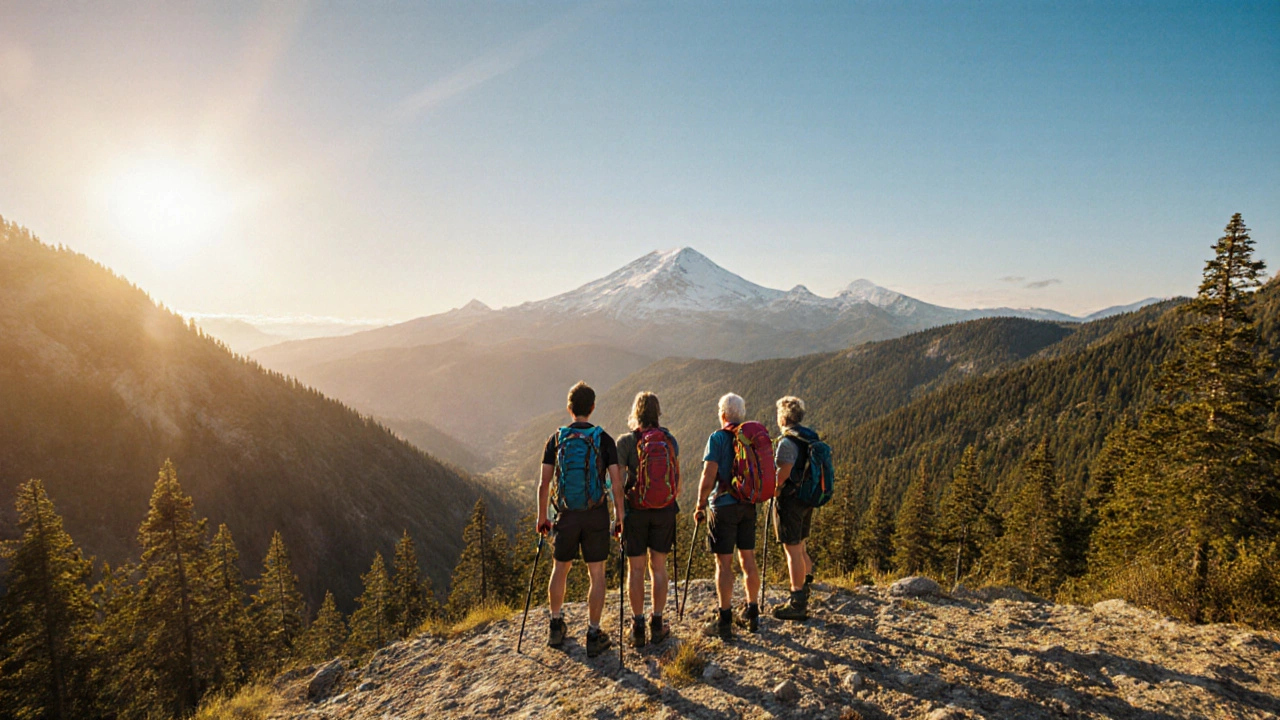Planning a trip to the mountains? Great idea, but you’ll want to be ready for the change in air, temperature, and terrain. Below are simple steps to keep you feeling good on the trail, whether you’re heading to the Alps, the Rockies, or a local peak.
First, make a list of the medicines you already take. Bring a few days' supply plus a little extra in case of travel delays. If you use insulin, thyroid pills, or any prescription that must stay cool, pack a small insulated bag and a portable cooler pack.
Add over‑the‑counter items that cover common mountain issues: pain relievers like ibuprofen, antihistamines for unexpected allergies, and an anti‑diarrheal tablet. A basic first‑aid kit with bandages, antiseptic wipes, and tweezers is a must.
Don’t forget skin protection. In hot, humid valleys you might get yeast infections on the skin. A light antifungal cream can help if you notice itching or redness. Sunscreen, lip balm with SPF, and sunglasses protect you from strong UV rays at altitude.
Altitude sickness can strike anyone, even if you’re fit. Your body needs time to adjust. If you’re above 2,500 meters (8,200 feet), plan a gradual ascent. Spend a night at a lower elevation before pushing higher.
Hydration is critical. Drink water regularly—aim for at least three liters a day. Avoid alcohol and caffeine because they can dehydrate you faster. If you feel a headache, nausea, or shortness of breath, stop, rest, and sip more fluids. In severe cases, descend immediately and seek medical help.
Vaccinations are another piece of the puzzle. The flu shot and pneumonia vaccine are worth discussing with your doctor before a long mountain stay, especially if you’re pregnant or have a chronic lung condition.
When you’re on the trail, pack light, breathable clothing and waterproof layers. Change socks often to keep feet dry and reduce the risk of fungal infections. If you notice any rash, clean the area and apply an antifungal ointment.
Finally, know where the nearest clinic or emergency service is located. Save a local emergency number in your phone and keep a written copy of any chronic conditions and medications you take. A simple note can save time if you need help.
With a well‑stocked health kit, a plan for altitude adjustment, and a few smart habits, your mountain vacation can stay fun and safe. Enjoy the fresh air, stunning views, and the sense of achievement that comes with each summit.

Learn how to pick the optimal altitude for your mountain vacation, balance fitness, activity type, and safety, and master acclimatization for a smooth trip.
read more